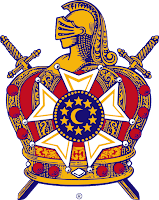Defining the Appearance of a Conflict of Interest
Before delving into the importance of avoiding the appearance of a conflict of interest, it's crucial to understand this concept. In essence, the appearance of a conflict of interest arises when an individual's actions or decisions, while not necessarily driven by a genuine conflict, might be perceived as such by an external observer. It hinges on the perception of impropriety rather than a genuine ethical breach.
Why It Matters
Maintaining a Reputation for Integrity: One of the primary reasons for vigilance in avoiding the appearance of a conflict of interest is to safeguard an organization's reputation. Non-profit organizations rely heavily on public trust and support. Any perceived impropriety, even if it lacks substance, can tarnish this reputation.
Preserving Trust Among Stakeholders: Within non-profits, trust among stakeholders is paramount. These organizations often rely on donors, volunteers, and community support to fulfill their missions. The mere appearance of a conflict of interest can erode this trust, causing stakeholders to question the organization's ethical conduct.
Enhancing Transparency: Transparency is a cornerstone of ethical governance in non-profits. By actively avoiding the appearance of conflicts, organizations demonstrate a commitment to openness and transparency in their operations. This commitment fosters a culture of transparency that encourages stakeholders to remain vigilant about ethical conduct.
Preventing Actual Conflicts: Proactively addressing the appearance of conflicts of interest can prevent genuine conflicts from arising. When members and leaders understand the importance of avoiding even the appearance of impropriety, they are more likely to exercise caution and ethical diligence in their actions and decisions.
Adhering to Legal and Regulatory Standards: In many cases, legal and regulatory frameworks require non-profit organizations to not only avoid conflicts of interest but also their mere appearance. By doing so, these organizations ensure compliance with relevant laws and regulations, safeguarding their legal standing.
Identifying Conflicts of Interest
At the heart of conflict of interest is the concern that personal interests could compromise one's professional judgment or actions within the organization. Non-profits operate under a mandate to serve their missions and communities, putting the needs of the organization and its beneficiaries above all else.
Vendor Relationships: One common situation is when a board member or staff member has a financial interest in a vendor company that the non-profit uses for its operations. This scenario can raise questions about whether the vendor selection was driven by personal gain or the organization's best interest.
Family Ties: Another potential conflict occurs when a board member's close family member works for the non-profit. This situation may lead to perceptions of nepotism or bias in decision-making.
Dual Roles: Some individuals may hold leadership positions in both the non-profit and related for-profit entities. This dual role can blur lines and create uncertainty about where their loyalties lie.
Fundraising Events: Major sponsors of fundraising events can include companies associated with board members. This sponsorship may lead to concerns about whether the non-profit gives preferential treatment to its sponsors.
Personal Investments: A member of the non-profit's leadership investing personally in a project under consideration by the organization, or vice versa, can trigger concerns about the alignment of interests.
Employment Decisions: When board members are involved in hiring or firing decisions and have personal relationships with candidates or current staff members, questions about fairness in employment practices may arise.
Real Estate Transactions: Non-profits engaged in property transactions may involve board members who are real estate agents or have a stake in the property. This situation can lead to suspicions of biased dealings.
Board Member Perks: Special benefits granted exclusively to board members, such as discounts or unique access, can raise concerns about undue privileges.
Confidential Information: If a board member leaks sensitive information about the organization to external parties, it can undermine trust and be perceived as a breach of confidentiality.
Personal Investments: Instances where leadership members invest personally in projects being considered by the organization may evoke questions about the alignment of interests and the potential for bias.
Organizational Remedies
Recusal and Disclosure: Encourage board members, staff, and volunteers to promptly disclose any potential conflicts of interest. Once disclosed, those individuals should recuse themselves from discussions, decisions, or votes related to the conflicted matter. This practice ensures that their personal interests do not influence the organization's actions and helps maintain transparency.
Clear Conflict of Interest Policy: Develop a comprehensive conflict of interest policy that outlines acceptable and unacceptable situations and provides guidance on disclosure, recusal, and decision-making procedures. Ensure that all members of the organization are aware of this policy and receive regular training on its implementation.
Third-Party Review:
In cases where a conflict of interest is particularly complex or potentially damaging to the organization's reputation, consider involving an impartial third party, such as an ethics committee or legal counsel, to review the situation and make recommendations. This external perspective can help ensure fair and unbiased resolutions.
Conclusion
In the realm of ethical governance, non-profit organizations of all kinds recognize the significance of not only avoiding conflicts of interest but also the appearance of such conflicts. This commitment reflects a dedication to maintaining a sterling reputation, preserving trust among stakeholders, enhancing transparency, preventing genuine conflicts, and adhering to legal standards. Through this diligence, non-profits continue to uphold their values of integrity and accountability, ensuring their place as beacons of ethical conduct within their communities and the broader world.










